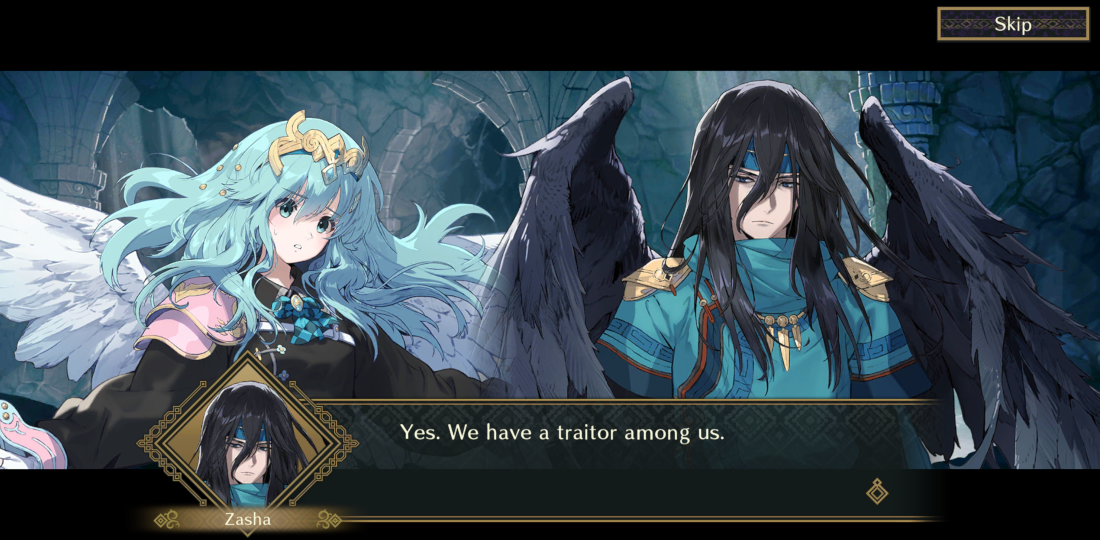
They're not going to live this one down.

They're not going to live this one down.
It's been an interesting week, with two back-to-back Fire Emblem articles. That second article is still in the works, by the way— but it was thrown off schedule by an entire Fire Emblem game being thrown out onto the street while I was working on it.
Fire Emblem Shadows is the second game in Fire Emblem's mobile lineup, from the same one-two development team of Intelligent Systems an DeNA that gave us Fire Emblem Heroes. Unlike Heroes, though, this isn't a gacha game; with rare exception, you don't have to spend real money to play.
So, what the hell is it, then? Initial impressions have been decidedly mixed. A lot of people have latched onto the idea that this is Fire Emblem Among Us, and that's not... technically... untrue. It is a social deduction game, where one player in the lobby is trying to undermine everyone else. You get to vote who you think that it is, and if you're right, you're more likely to beat them when they reveal themselves.
Mechanically, this is an autobattler. Your unit wanders towards enemies and hits them with basic attacks; you and the other players are responsible for playing spells onto the battlefield, trying to hit large groups of enemies without catching anyone else in the crossfire. Each round has two steps: The deduction phase where one player has a secret advantage, and the reveal phase where that player switches sides.
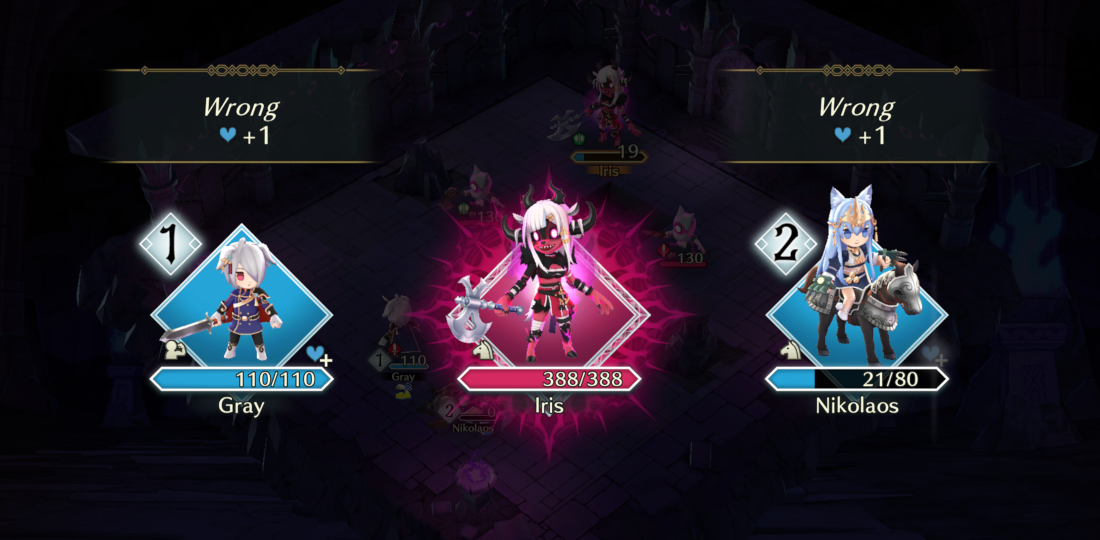
That core mechanic, the social deduction phase, is actually pretty weak. There are only three players, so it's a coin flip when you guess, and the reward for getting it right is adding another health bar on for the second phase. That's not an insubstantial reward— you need that extra health bar— but it's not a dealbreaker either. Rounds are short, so failure doesn't really mean anything. Winning gets you extra rewards, but you can get just as many by killing enemies (or your friends) and completing mid-battle achievements like staying alive, guessing correctly, or sufficiently tricking the other players.
It plays less like an autobattler and more like a speed round of a real social deduction game. You're rewarded for clever plays, not skilled ones. Most of the "meat" of the game is built into stats, character levels, weapons and equippable spells. You're just as likely to guess right and lose as you are to guess wrong and win anyway.
You would think that that's a dealbreaker, a fundamental flaw at the heart of the game, but the reality is that it just makes it easier to queue up for another round. Shadows is a timewaster, a fun little distraction. It doesn't want you to get stuck in your own head and stop playing; it wants you to get midly invested, play a few rounds every day, and put some money into the game whenever you get bored.
For once, this isn't a gacha game, so it uses the Fortnite model of monetization: Battle Pass, character skins, equippable items. It's not hard to avoid spending money. The game happily advertises itself as "free to start," but being a whale for this game more or less means spending... ten, twenty dollars a month to keep up with the battle pass and cash out your rewards.
It's simple, it's painless, and that makes it appealing in an over-saturated market. Not everyone has the time, energy, and money to invest in a massive gacha like Infinity Nikki, so games like Heroes and Shadows skirt by on low expectations. It's a game that has an extremely low barrier for entry, so the cost of investment is also low. There's a server for matchmaking and anticheat, but keeping the game running doesn't have a huge overhead, either. It's a snack— the kind of game that I spent hundreds of hours playing on flash game websites when I was a kid. Easy, quick, and inoffensive.
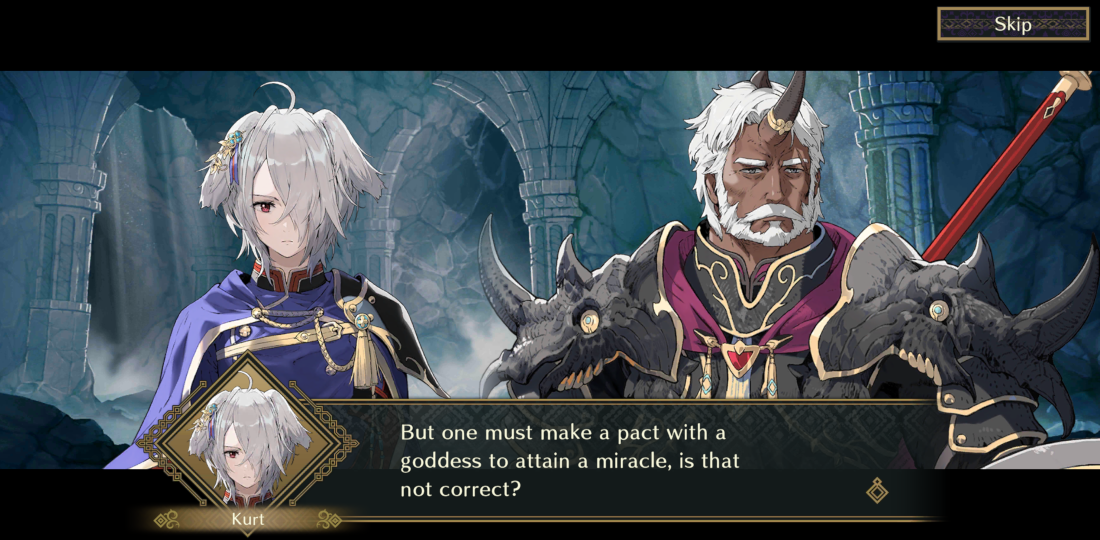
The story of Shadows is equally inoffensive, playing to the same strengths as the gameplay. Kurt is a Lord of a dying kingdom, as Fire Emblem characters often are, but there's a wrinkle in the plan: Kurt's father never had a male heir. He has retainers, friends, a wife, a kingdom waiting in the wings, but it's all going to fall apart if he doesn't keep up the charade.
As far as fundamentals, this is pretty good storytelling. This is a game about ultimately meaningless betrayals, of characters repressing themselves and their desires only to let them out at a desperate moment. Kurt's shadow form is stripped half-naked and chained, literally weighed down by the vows he made to his kingdom. The other characters follow suit: Carina struggles with anger issues, and her shadow form is a literal raging bull that tramples the people she wants to protect.
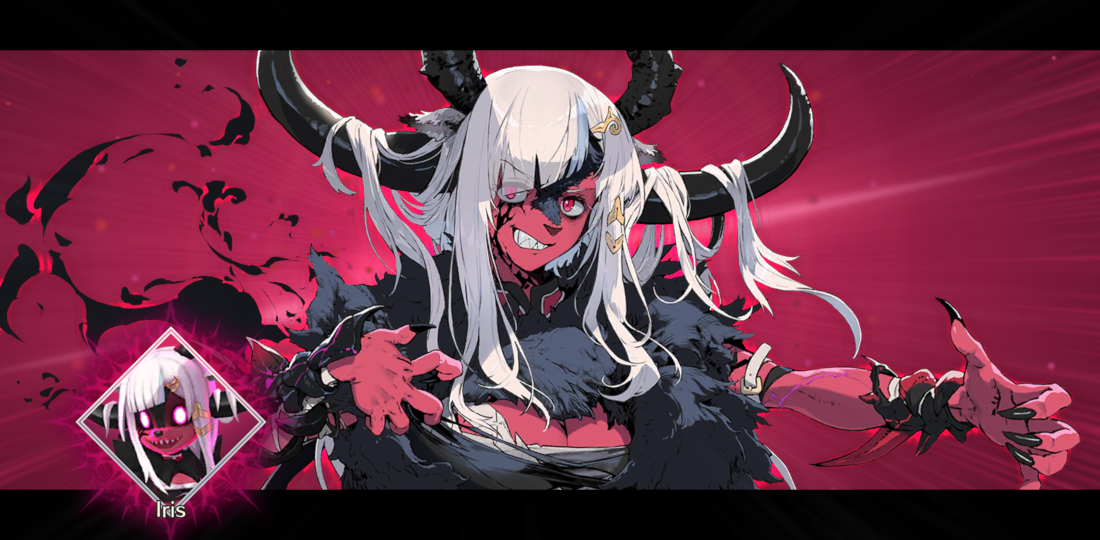
The expectation, laid out by cutscenes and the other games in the development space, is that this story has nothing to do with the gameplay. It's just an excuse, a bunch of set-dressing. Instead, Shadows puts its best foot forward and presents a story that puts the themes of the game out in the open: This is a game about selfishness and selflessness. It's about the decisions that we make when we know we're right, and the decisions we make when we can't afford to be wrong.
A broad interpretation of the game's story, taken at face value, is that all of the characters have already failed— that their hopes and dreams are literally unobtainable. Fenris, the dark goddess, becomes the only solution to their problems, making an offer that none of them can refuse. We see this literally happen in the story, but in a macrocosmic sense, all of the chracters have already fallen. We see their shadow forms whenever we want to, and we can play as them on either side of the divide. The only difference between a "light" character and a "dark" character is how they perceive themselves, whether they're fighting their desires or giving in to them.
Looking at it that way, giving into the darkness isn't betraying your friends— it's exposing the parts of yourself that you don't want other people to see. It's... honesty, expression, portrayed as a betrayal. Not the person you want to be, but the person you are.
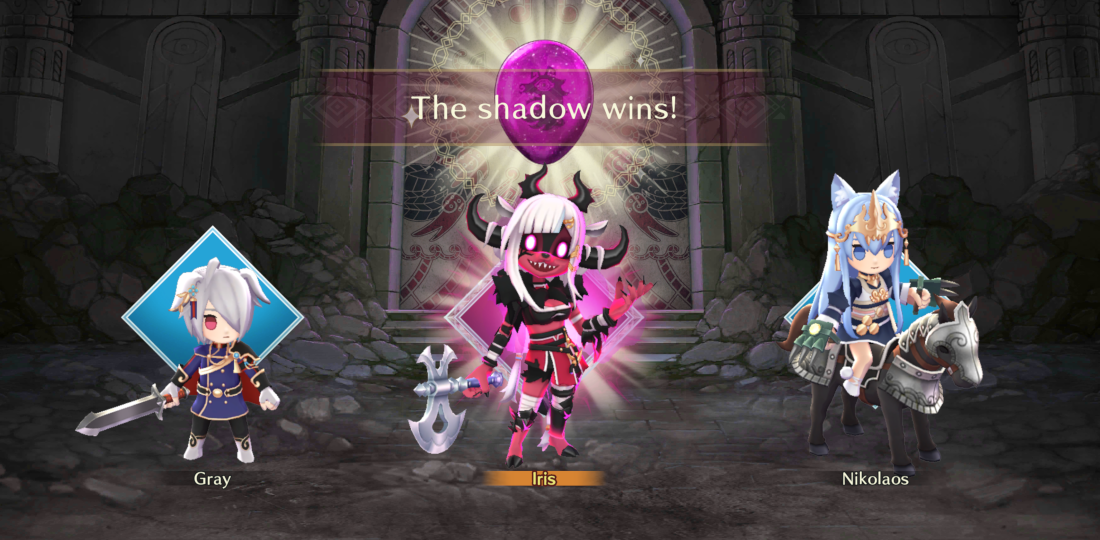
Thinking about gacha games again, I'm surprised at how much I enjoyed this game because of what it isn't. It's not a "real" Fire Emblem game, and it's not a gambling game. It wears its heart on its sleeve, and that's what I like about it. There's always the chance of it stabbing me in the back— updates, monetization, power creep— but like the matches themselves, it's not going to overstay its welcome.
Fire Emblem Shadows is a simple, clever game about lying about the things that don't matter. It's fun, it's breezy, and it doesn't cost anything in a meaningful way, so go ahead and check it out.
I'll see you next time. Thanks for reading.